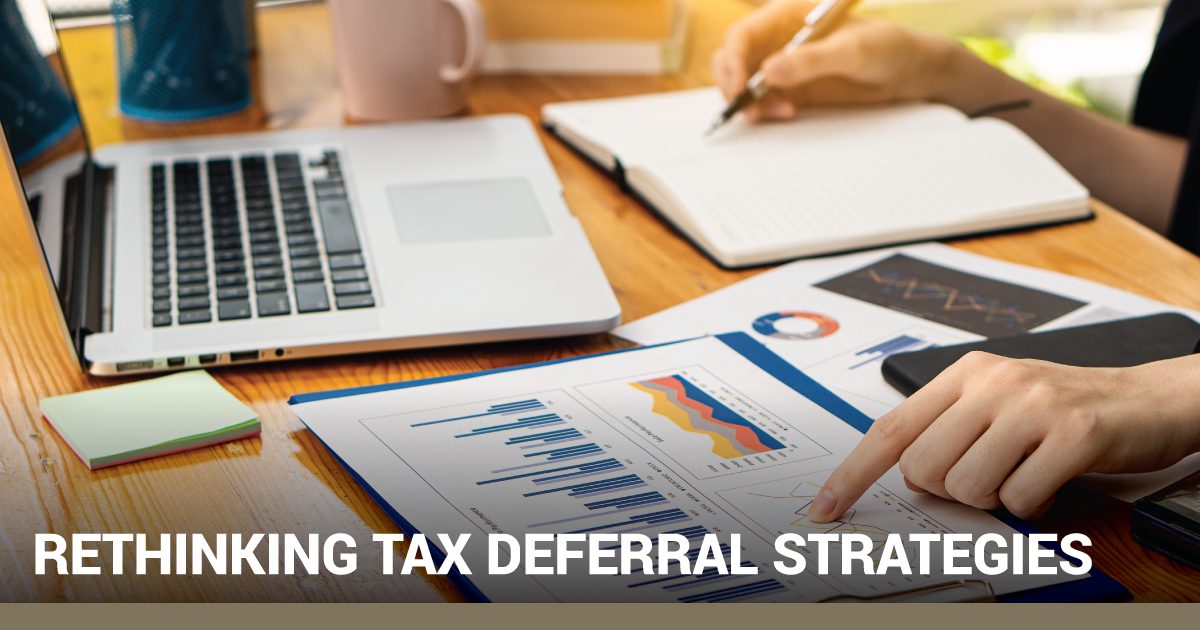We want to bring to your attention an essential aspect of financial planning that is often overlooked but can have a significant impact on your future financial security: the strategy of deferring taxes until retirement. While conventional wisdom has encouraged us to defer tax liabilities for as long as possible, there are several compelling reasons to reconsider this approach, especially considering the changing tax landscape.
Future Tax Rate Uncertainty
The Tax Cuts and Jobs Act of 2017 significantly lowered tax rates, but these provisions are set to expire at the end of 2025. The possibility of future tax rate increases, particularly if Congress doesn’t extend current rules, presents a genuine concern. Higher tax rates in the future can lead to a more substantial tax burden when you eventually access your retirement funds.
Required Minimum Distributions (RMDs) and Medicare Premium Surcharges
As your qualified retirement accounts grow, so does the associated tax liability. This could lead to challenges related to RMDs pushing you into higher tax brackets and triggering Medicare premium surcharges. To maintain control and minimize tax burdens, it’s essential to consider your tax strategies early.
Life Changes and Other Tax Implications
Life events like the death of a spouse or divorce can impact your tax status, potentially pushing you into a higher tax bracket. Additionally, Congress may choose to raise tax rates to address increasing government spending, which could further affect your overall tax burden.
Deferring Capital Gains in Non-Qualified Accounts
Limiting your investment decisions solely based on reducing annual tax payments can lead to the unintended consequence of concentrating your wealth in a few assets. Deferment should not let the “tax tail wag the dog.” Focus on managing risk and assessing net gains after taxes to achieve a more balanced and tax-efficient investment strategy.
‘Tax Location’ of Assets
Not all accounts are taxed the same way, and you do not have to invest your qualified accounts (IRAs, 401ks) the same way as non-qualified (post-tax investment accounts). Consider placing assets generating ordinary income in qualified accounts and capital-gain-oriented assets in non-qualified accounts eligible for lower long-term capital gains tax rates, allowing for more tax efficiency.
The Long-Term Roth Advantage
Assets with high long-term growth potential, such as stocks, should be held in Roth IRAs. While Roth contributions are not tax-deferred, they provide tax-free growth and tax-free withdrawals in retirement. This shields you from future tax rate increases and ensures a more secure retirement.
In conclusion, it’s essential to think long-term and strategically regarding taxes and investments. Rather than simply deferring taxes, consider the implications of future tax rates, account types, and the overall impact on your financial well-being in retirement. The article below provides additional details and examples of the items mentioned above.
If you have any questions or need guidance on tax-efficient strategies for your specific financial situation, please don’t hesitate to reach out.
Read More